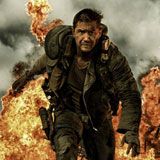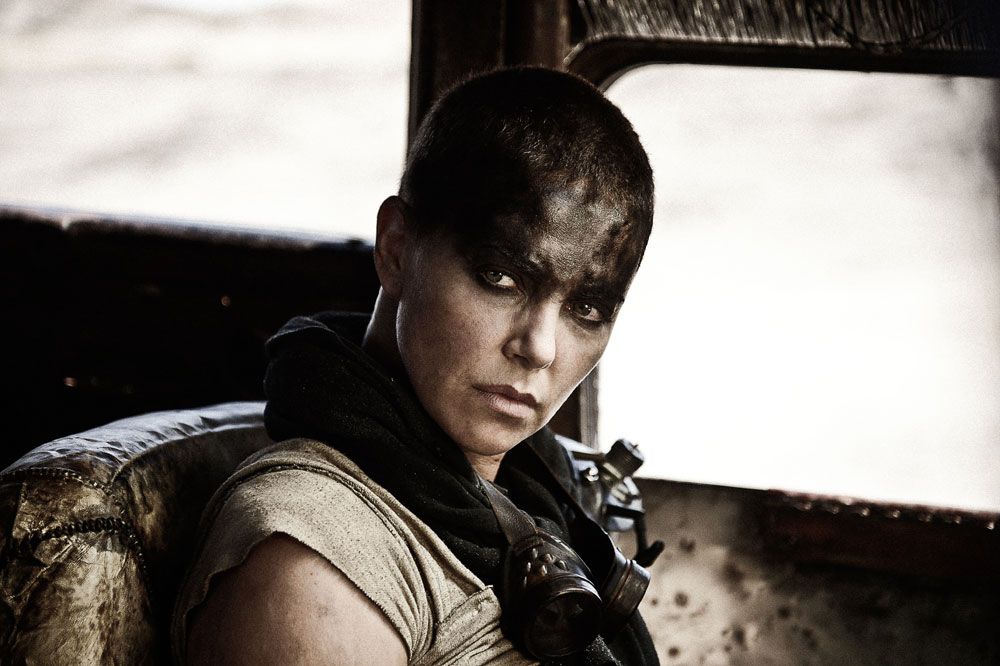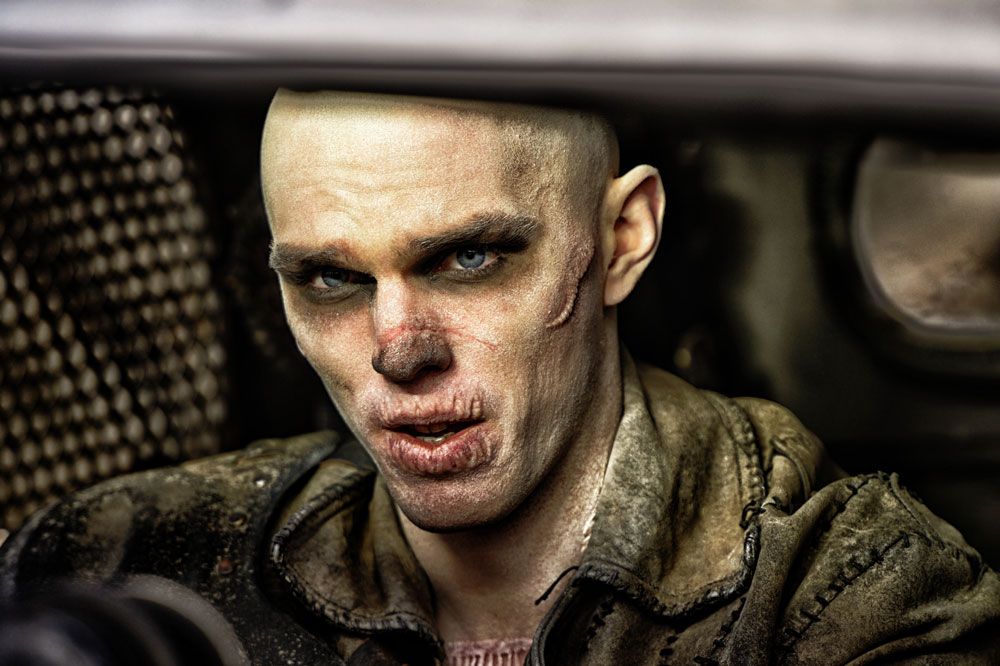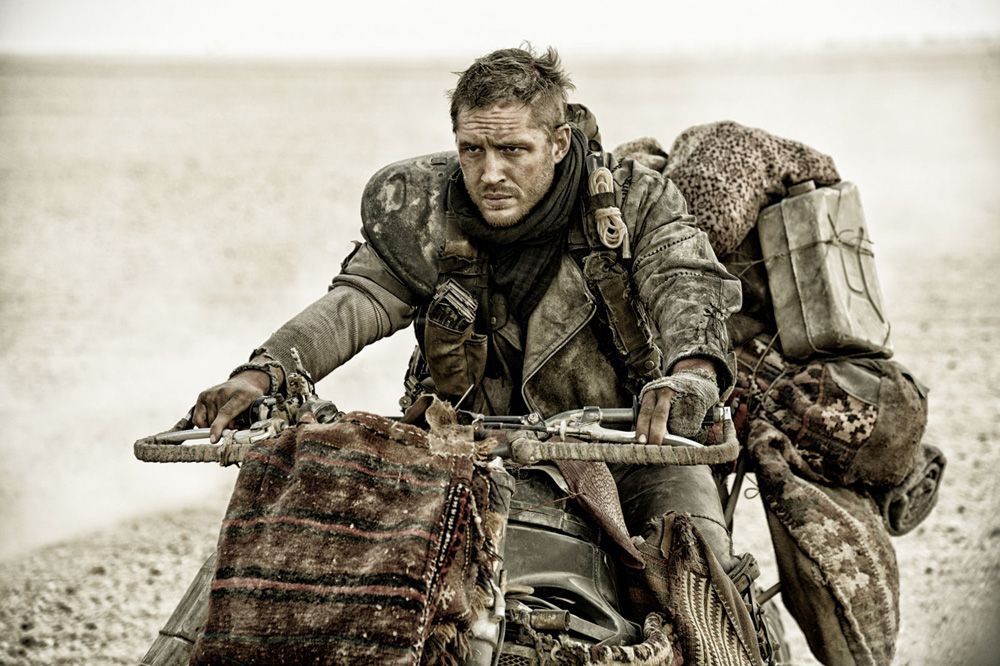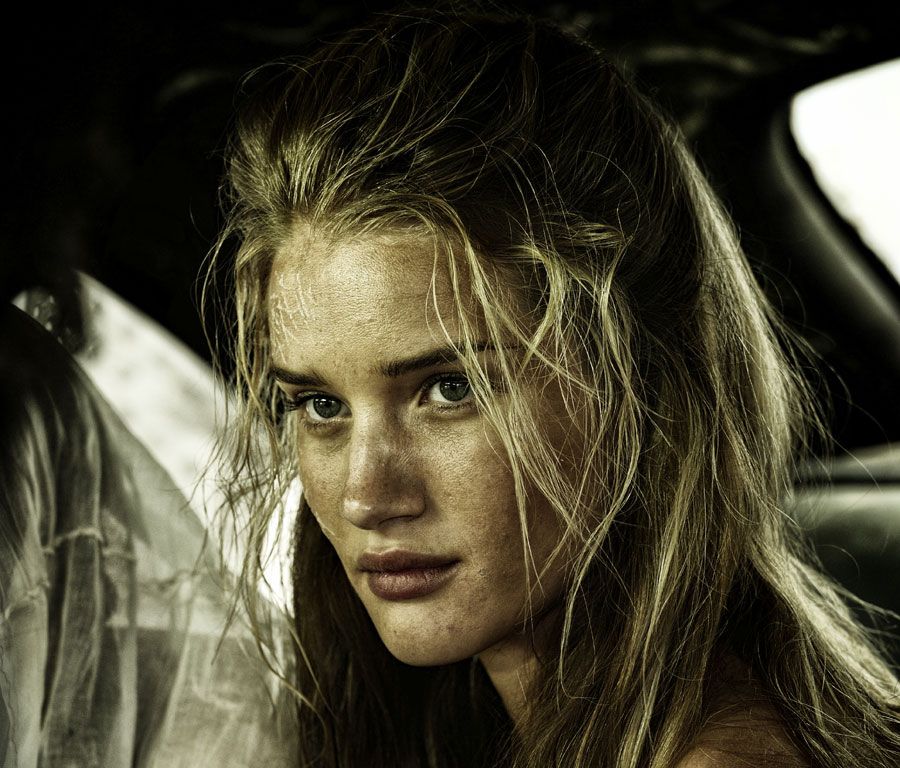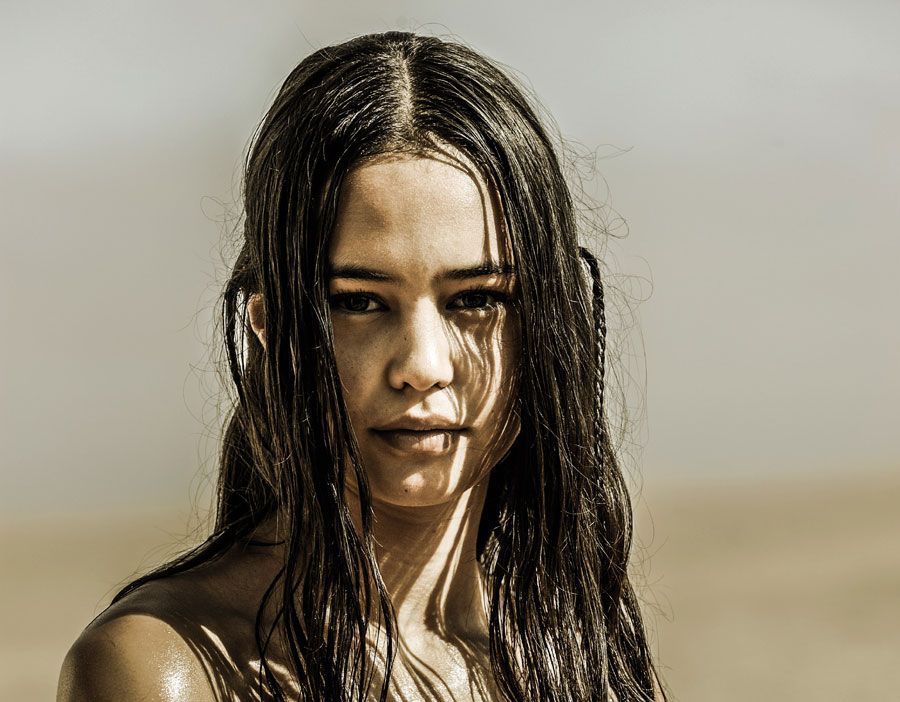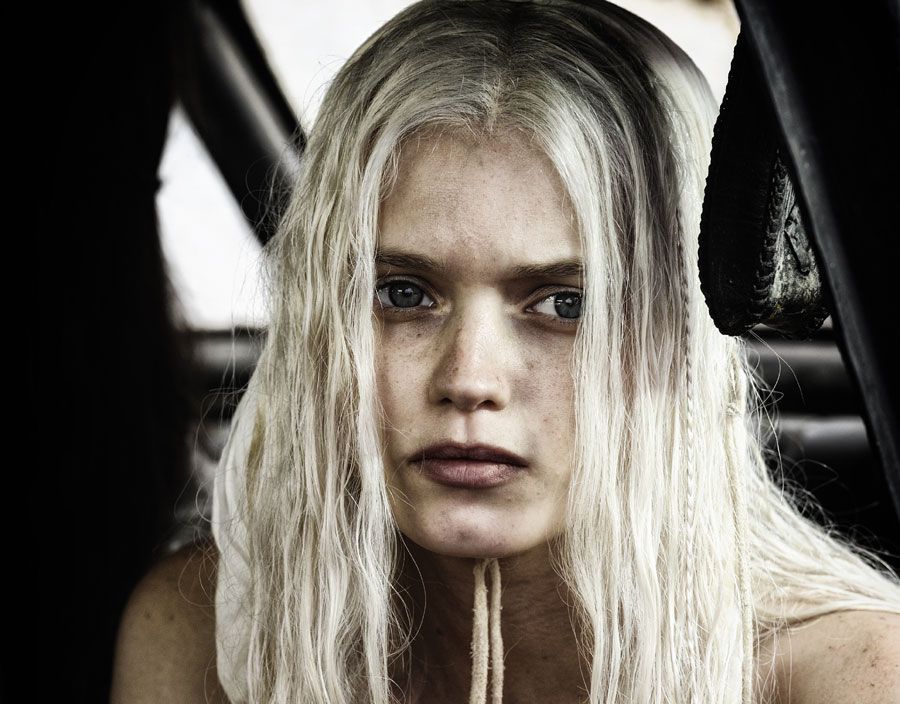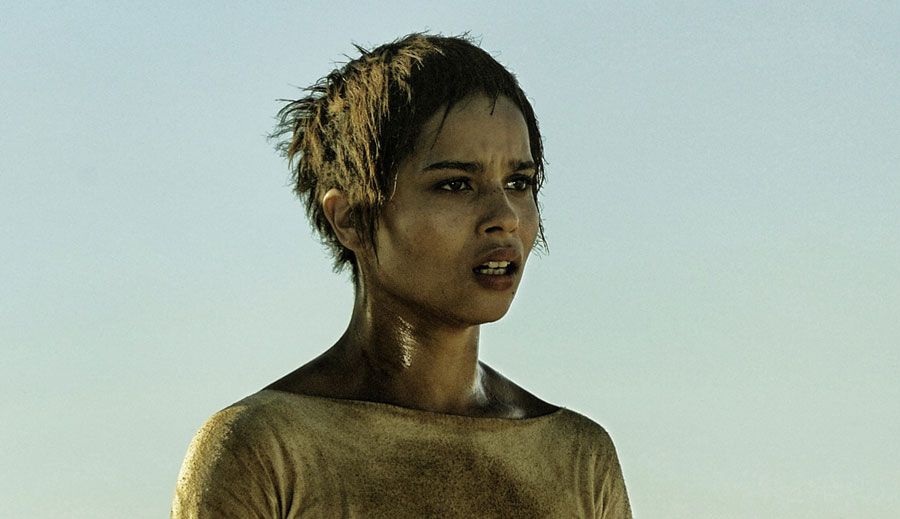Even in today's franchise-driven film industry, stepping into a new incarnation of a revered and highly influential action series that hadn't released a new installment in three decades had to be daunting, even with the return of the original director.
Add to that the recasting of the iconic hero, the use of very little CGI for the trademark outlandish stunts, and a preference for a cinematic style of storytelling over dialogue, and suddenly you have a fairly complete checklist of elements that can leave an actor's knees knocking.
But the cast of “Mad Max: Fury Road” persevered, largely by placing its faith in visionary filmmaker George Miller. The result, the actors agree, was something wondrous, both in professional and personal terms.
During a recent press gathering, the stars of “Fury Road,” including Tom Hardy, Charlize Theron, Nicholas Hoult, Rosie Huntington-Whitely, Zoe Kravitz, Abbey Lee and Courtney Eaton, reflected on a film that's already being hailed as an instant classic.
Tom Hardy: Initially I was daunted because, obviously, “Mad Max” is synonymous with Mel Gibson, and a much-loved character by many people. And at the same time, I was really excited to get the job because it's always exciting to get a job. But it's such a big fish to land. For me, the other side of that was, everybody loves Mel as Max, and nobody's going to want me at all. So it's like being a new boy at school, and set up, in some way, for failure immediately.
Director George Miller Discusses Making the World "Uniquely Familiar But Not Retro"
But then, George – as much as I believe he created the car-chase movie, he also created the post-apocalyptic movie, some 40 years ago. And there was no real pressure to fill in anybody's shoes or to sort of be a new Mad Max of any sort. I was inheriting a legacy and had been chosen by George to translate his vision and his character to today's foray into the “Mad Max” world which is further discovered and further mined, and his mythology is being further pursued by George. And that he'd asked me to come along and portray his Max.
So really, it was a question of doing what was asked for me, and trying to understand actually, and fully translate George's vision, which is epic. And it's not just what you see in “Fury Road,” but behind “Fury Road” and laterally to “Fury Road,” there is an abundance of material, which is yet to sort of reveal itself. So I don't think I brought anything new as such, but the fact that I'm just a new actor in the fourth installment of the legacy which once was ultimately, Mel's role and still is, rightly so. And I'm just the new boy, and hopefully, accepted.
Charlize Theron: I remember there were these loud whispers going around town that George was going to re imagine this world, and that [whispers dramatically] "He was going to create this female character, and she's going to like stand right next to Max." And at first, you're always like, "That's awesome." And then you become a little bit skeptical, and you're like, "Hmm, heard that before. And then I'm going to be the chick that ends up in the back of the frame with the push up bra, with a wisp of hair in my mouth."
I've been doing this for a while, and I've made a real effort to try and veer away from those things. And then I met George, and there was just something about him that I really believed him, that he wanted to do something that felt really truthful … I think women are just eager to feel like they're on an equal playing field. Let me speak for myself: I just don't want to be put on a pedestal. I don't want to be anything other than what we are. I just want to be a woman, but an authentic woman, if it's the genre or any other genre.
So when you come across that rare filmmaker that really wants to embrace that, and stick it through, it's really nice. And should there be more it? Hell, yeah.
Nicholas Hoult: George had a great way of describing to me the world we were living in. And also, before we even first got to Australia and down to Namibia, he would send me videos, basically chronicling my character's life from inception and every major moment up to the day you meet him in the movie, and his physical state when he starts the film and everything he believes in. So from that point then, you've got a great idea of what the character's like and what he enjoys and what he believes in.
And then I just tried to listen to George on set and have fun. It was quite an extreme atmosphere but something that really got the adrenalin pumping because it was so real with the noise of the vehicles and everyone around you so pumped up on energy. So it was kind of then easy just to get swept up in the moment.
Hardy: [I based Max on] that cartoon character, Wile E. Coyote – oh, and Harrison Ford in Indiana Jones terms because I'm frantic. I love Harrison Ford. I think he's brilliant, and when I was a kid, I remember watching his movies and thinking, "Now that's the proper man."
For me, when I was a kid, when he did “Indiana Jones,” it was two moves: one was when he's face to face with a man with a sword. And it's this rather flamboyant sort of flurry with a sword, and Harrison's character pulls out a pistol and shoots him because he didn't want to entertain the fight, and I thought, "That's pretty real" – and I would do that; that makes sense, as opposed to having a big fight. And the other one was him being scared of snakes – I mean, having fear. And so I like to see a man with doubt or has fear, that was vulnerable, and then having to achieve something that's incredibly difficult with all of those elements as well. It was key. So that was a keynote for Max, as well as going into an action movie nowadays. For me, I felt disinterest from watching people who can just achieve without any fear.
Zoe Kravitz Was Ready to "Get Scraped Up a Bit" For "Mad Max: Fury Road"
Theron: [Dance] was a huge part of my life, but I'd forgotten. It was a long time ago that I was on stage telling stories just with my body. I feel I integrated that with my work, but this was to another extreme. But we talked about it a lot, and George is truly fascinated by that. And I will tell you right now, as actors, we were fighting that tooth and nail because of fear. Because language is a crutch, and dialogue is a crutch, and it's so easy to just have a great writer write you a line.
George was just so adamant about keeping this on track and the understanding of the world being so bare and that language would be such a luxury that these people would never have access to was so true that in the beginning we definitely – all of us – were just like, "Um, can I get one line here?"… But for me, maybe five weeks into shooting it, and became a little bit more second nature. I think I trusted it a little bit more, and it became easier. And when I watch the movie now, it's so evident to me that that was exactly the way to tell it.
Rosie Huntington-Whiteley: I love doing the stunts. It's funny because people would always ask, "Well, what was the most dangerous part of it?" But we're so prepped by the stunt team – and the stunt team's the best in the world. We're asked if we're comfortable doing the stunts. For me, I'm always up for them. You don't get to do that on your average days, hanging out of a car while it's driving at 50 miles an hour and you're going up on a wire and jumping through fire. Those things are really fun. It's a moment to be truly unselfconscious. You're reacting to exactly what's going on in front of you, and I was stoked that I got a lot of action.
Hoult: The first week or second week, I was sitting in my hot rod and then saw the signal for everyone to start all the engines up. And there was just this rumbling from all these V8s and V12s from around me. And it was the first time, I think, on a set I really got like, natural chills all up and down – like every hair on my body stood on end. And I was like "Whoa – this is intense."
And then when everyone rolled out, and I had like buttons on my car to make flames come out of my exhaust and things like that, and I was like, "This is great! I'm having a lot of fun." And the only thing that made it difficult was you couldn't hear a lot of the time. So you'd be in your car kind of mooching along, and then you'd see the camera truck come flying past you. And you'd be like, "Oh, damn, is this now? Are we shooting?"
Courtney Eaton: We all had scratches. I remember one day we were shooting at the salt lake things, and we were pulling along the tire covers – and Charlize's arm whipped around the metal arm and smashed me in the head.
Abbey Lee: We all had bruises and cuts. I pulled my back out pretty badly running up a hill and my sacrum came away from my coccyx, and I was quite a bit of pain for a couple of weeks. But they got a good team of people from that part of the world taking care of me. I had an osteopath and a chiropractor that was there on set with me and afterwards, so I was well protected. But I don't think any of us like broke any bones. I'd do it all over again!
Review: "Mad Max: Fury Road" is Even Better, Crazier Than Trailers Promise
Hoult: I'm strapped underneath the War Rig, and I remember the day when we went out to practice that stunt: They harnessed me to that pole underneath, and I'm a few inches off of the desert floor. And then just before we began to roll out to test to see if it was all right and I was comfortable doing it, one of the stunt guys turns to me, and he goes, "Oh, Nick, don't move your head too far that way because the front tire's there, and it will just take it right off." And I was fine until then. And I was like, "What? Oh, God." And then we rolled off, and I was panicked throughout the whole rest of the time.
Hardy: I'm not very good with heights, so the scaffolding pole for re-shoots – I remember there in Australia, they set something up in the car park, my own private scaffolding pole. And I went down there, and I was really jet lagged. And there's a photograph of Doug [Coleman, stunt performer] – he had to hold my hand. I'm like, "I really don't want to go up the scaffolding pole!"
When the scaffolding pole goes that way, you naturally fall that way as well. And then when it comes back to the middle, you have to roll around and fall the other way. Otherwise your face mallets the side of the scaffolding pole, and that really hurts! And there's no one up there to complain to. You sort of drift into the camera and then drift away again, and it lasts as long as it lasts really. And so that was fun.
Lee: We had a month of prep before we started filming. And we met with Eve Ensler, who's a feminist, and we kind of built our stories on that. … She's done a lot of work with Congo, and she's worked with very closely with a lot of women who have had unthinkable things happen to them at the hands of men. And she just was able to really come in and she worked with us. And she's a lot of fun – she was possibly one of the funnest part of this movie was getting to work with her.
She was just there to kind of explain to us the types of things that these girls would have gone through day to day with being held captive their whole lives and being sexually abused. And it just gave each of us a real backbone to our character and heart and emotion. And I think it was an incredibly moving period for all of us and brought something out in each of us.
Zoe Kravitz: it was really important to George – and to us – that we were very, very specific about who these women are and what they've been through. And what they've been through together. There's so little dialogue in the film that I think the only way that we could have brought these characters to life is to be very specific about who they were. So we wrote down backstories. We did exercises with each other…We were very specific about these women and what they'd been through together, and their relationships to each other.
Theron: I don't get to make a lot of movies with women – meaning, act with this amount of women. I was surrounded by women and it was like a breath of fresh air for me. And I knew instantly from understanding the project that George has an innate understanding in what women represent in society, and he wanted that to reflect in a post-apocalyptic world in the most truthful way possible. And it's interesting doing these press junkets and having people come up to you and saying, "Oh, strong women! Strong women!" It's like, "No, we're just actually women in this movie."
We had a filmmaker that understood that the truth of women are powerful enough, and that we don't want to be put on pedestals or made to be super-unnaturally strong and capable of doing things that we're not capable of doing. But what we are capable of doing is really interesting, and really informs a story like this especially.
”Mad Max: Fury Road” opens today nationwide.

